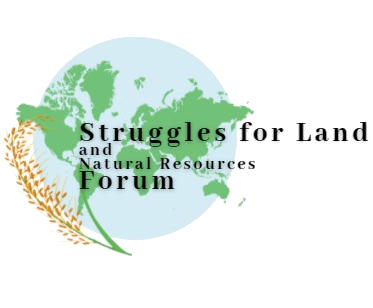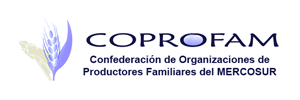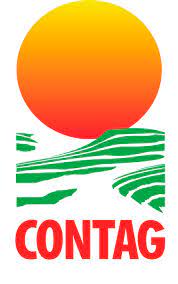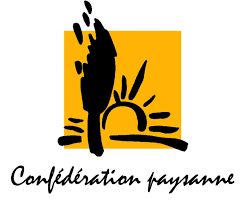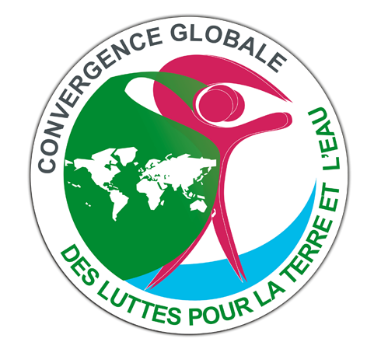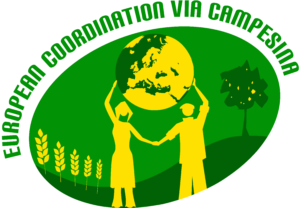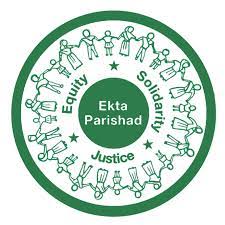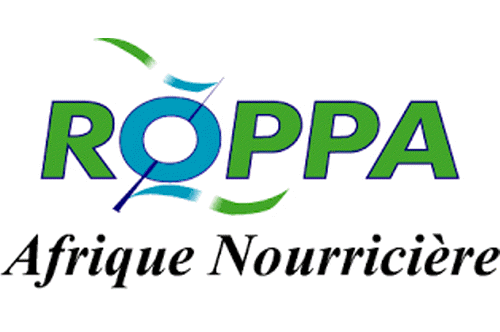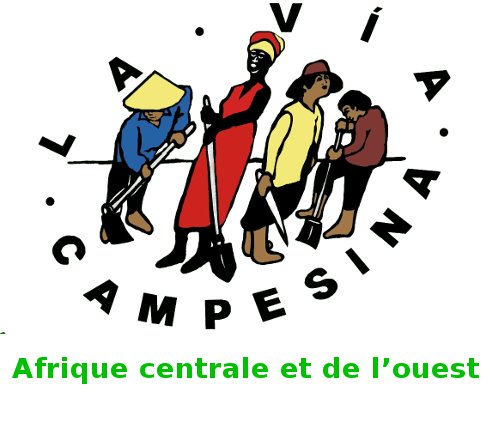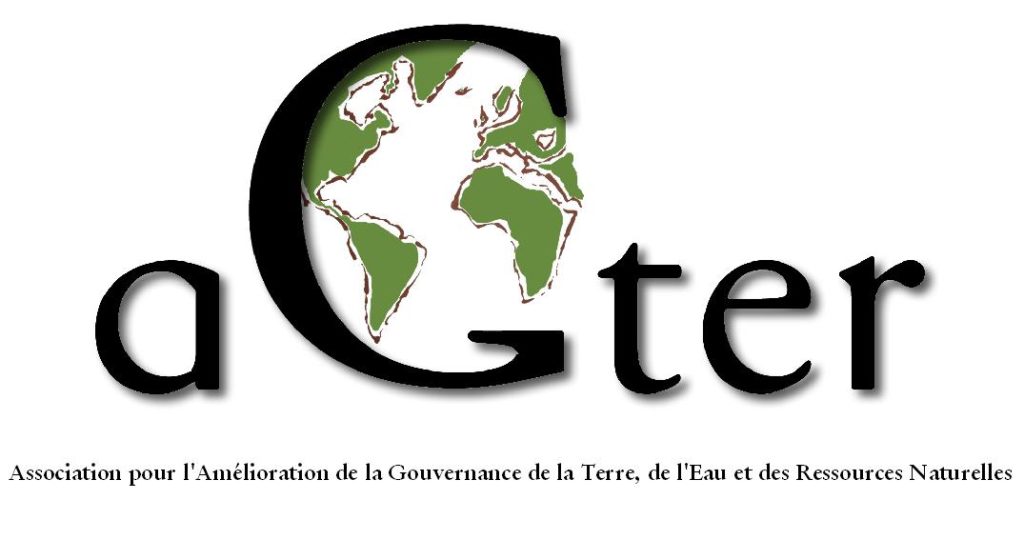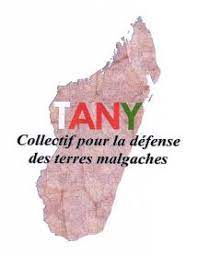The organizers
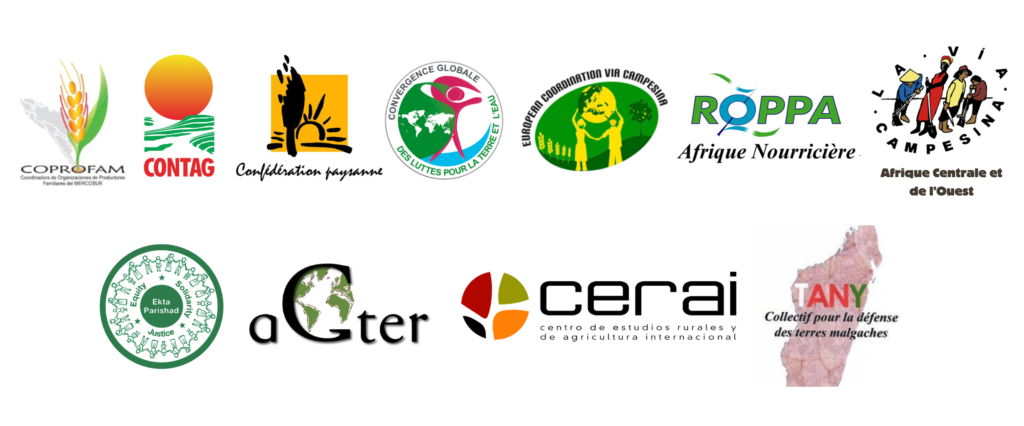
Family farmers' and ranchers' organizations
Confederation of Family Producers' Organizations of Greater Mercosur (COPROFAM)
The Confederation of Family Producers' Organizations of Greater Mercosur (COPROFAM) is composed of nine national organizations from seven countries. In addition, it comprises another 97 affiliates, including federations and confederations, and 4,750 grassroots organizations (unions, associations and others). In total, COPROFAM represents about 4 million family farmers, peasants and indigenous people.
Among its objectives are the representation of the interests of the associated organizations of family farmers, peasants and indigenous people in the countries of the enlarged Mercosur; the development, organization and support of actions that generate better living and working conditions in rural areas; participation in the design and implementation of sustainable rural development projects for the countries of the associated organisations and, in particular, the strengthening of the intervention capacity of the organisation and its associates in the processes of dialogue with governments through participation, with a capacity for analysis and proposal, clear definitions and political information strategy. Likewise, to train family farmers, peasants and indigenous people to intervene in the negotiation processes of the enlarged Mercosur and its member countries.
National Confederation of Agricultural Workers (CONTAG, Brazil)
The National Confederation of Agricultural Workers (CONTAG) celebrated its 50th anniversary on 22 December 2013. Currently it is composed of 27 federations of agricultural workers (FETAG) and more than 4,000 unions of workers and rural workers (STTR). It structures the Trade Union Movement of Workers and Rural Workers (MSTTR), which fights for the rights of more than 15, 7 million (PNAD/IBGE, 2009) men and women of the countryside and forest, who are family farmers, campers, agrarian reform pioneers, rural workers, sharecroppers, tenants, miners, quilombolas, artisanal fishermen and river dwellers. CONTAG is a member of COPROFAM and represents it in the Forum's steering committee.
Confédération Paysanne (France)
Since 1987, the Confédération paysanne has been a major player in the French agricultural trade union movement, promoting the values of solidarity and sharing. The project for a peasant agriculture that it defends integrates the social, agronomic and environmental dimensions in agricultural production. It is an alternative to an industrial agricultural model that eliminates too many farmers and diversified agricultural structures.
Convergence of Struggles for Land, Water and Peasant Seeds - West Africa (CGLTE WA)
The Global Convergence of West African Land and Water Struggles is a synergy of movements and organizations of the sub-region, to carry out collective actions based on common analyses and proposals set out in the declaration and the green booklet of the convergence. It is based on principles and convictions clearly defined in these two documents. Its overall objective is to influence the policies and legislative texts being developed on land, water, resources and seeds in the ECOWAS and UEMOA space in order to defend the rights of citizens within the framework of food sovereignty by promoting peasant agro-ecology and relying on the right to food.
European Coordination Via Campesina (ECVC)
The European Coordination Via Campesina (ECVC) is a grassroots organisation that currently brings together 31 national and regional peasant, agricultural and rural workers' organisations based in 21 different European countries. Food Sovereignty is at the heart of our work, whose main objective is the defence of the rights of peasants and farm workers and the promotion of a diversified peasant and family agriculture. These principles in turn require a legitimate, just, solidarity-based and sustainable food and agricultural policy that is necessary to guarantee food security and safety, public health, jobs in rural areas, but also to respond to the challenges of the global food crisis and climate change.
Ekta Parishad
Ekta Parishad is a non-violent, Gandhian social movement working on issues of access to land and forests at the national level in India. This movement has been building over the last 20 years from a local to a state to a national level, and gradually to an international visibility. The intention in mobilizing a very large and exponential group of poor people into a major federalist social movement was to be able to put direct pressure on government structures to ensure legal reforms and structural changes.
Ekta Parishad calls for a profound structural change in land reform that would lift the most marginalized people out of poverty. Substantial reforms in land rights could change the course of events by lifting 40% of the population out of absolute poverty and reducing the growing violence that threatens Indian society.
Network of Farmers' and Producers' Organizations of West Africa (ROPPA)
ROPPA is an initiative of farmers' and agricultural producers' organizations in West Africa. It brings together 13 national member farmers' organizations (Benin, Burkina Faso, Côte d'Ivoire, Gambia, Ghana, Guinea, Guinea-Bissau, Liberia, Mali, Niger, Senegal, Sierra Leone, Togo) and associated member farmers' organizations (Cape Verde, Nigeria).
Since its creation in June 2000 in Cotonou, ROPPA has positioned itself as a tool for the defence and promotion of family farms, which constitute the main agroforestry production system in West Africa. Its functioning is based, among other things, on peasant solidarity, which gives a place to everyone by associating all categories of peasant and agricultural producers' organizations in each country and which supports the peasant and agricultural producers' organizations and their members in the recognition of their identity, their rights and their roles. Consensus is chosen as the preferred approach to decide and act together and transparency to ensure accountability and regular renewal of mandates.
VIA CAMPESINA CENTRAL AND WEST AFRICA
Via Campesina Central and Western Africa is the component of the Central and Western Africa region of Via Campesina, an international movement that brings together millions of peasants, small and medium-sized producers, landless people, rural women and youth, indigenous people, migrants and agricultural workers...Strongly rooted in a spirit of unity and solidarity among these groups, it defends peasant agriculture and food sovereignty as a means to promote social justice and dignity. It clearly opposes industrial agriculture and multinational corporations that destroy social relations and the environment.
Women have a central role in Via Campesina. The movement defends their rights and gender equality. It also fights against all forms of violence against women. Young people also have a very important place and are the inspiring force of the movement.
It is an autonomous, pluralist and multicultural movement, political in its demand for social justice but without any political, economic or other affiliation.
Associations for the exchange of experiences, analysis and action in defence of the commons
Association for the Improvement of Land, Water and Natural Resources Governance (AGTER)
AGTER is an international non-profit association (under French law). It was created in March 2005 by a group of people from different backgrounds who had all participated in work or exchanges between actors of civil society organizations on the problems of access to natural resources and land. Convinced of the importance of clarifying the link between the causes of poverty and underdevelopment and access to resources, they felt it was essential to build alternatives to current policies.
AGTER aims to contribute to the improvement of the governance of land, water and natural resources and to the design of new forms of natural resource and land management adapted to the challenges of the twenty-first century. It promotes a permanent process of reflection and collective learning, designed to help members of civil society organisations and other stakeholders to inform themselves, formulate proposals and put them into practice.
Centre for International Rural and Agricultural Studies (CERAI)
The Centre for International Rural and Agricultural Studies (CERAI) is a rural development NGO that promotes agroecology and food sovereignty. Our aim is to reduce inequalities in rural communities to facilitate access to food and sustainable livelihoods in order to contribute to maintaining a living rural world.
CERAI was founded in 1994 and since then we have worked in Spain and more than 20 other countries. We promote sustainable development, human rights, human development, strengthening the social fabric in rural areas, gender equality and participatory democracy.
TANY Collective for the defense of Malagasy lands
The Collectif pour la défense des terres malgaches - TANY is an association created in France in 2009. It supports the citizens and farmers of Madagascar in their development and in their struggle to defend their land and natural resources. In partnership with Malagasy civil society organizations, the Collective carries out investigations and interpellations, organizes capacity building workshops and supports communities that are victims of land grabbing often due to investor projects in various sectors.
PERMANENT SECRETARIAT OF THE FORUM
The permanent secretariat of the Forum of Struggles for Land and Natural Resources is provided by AGTER with the support of CERAI
